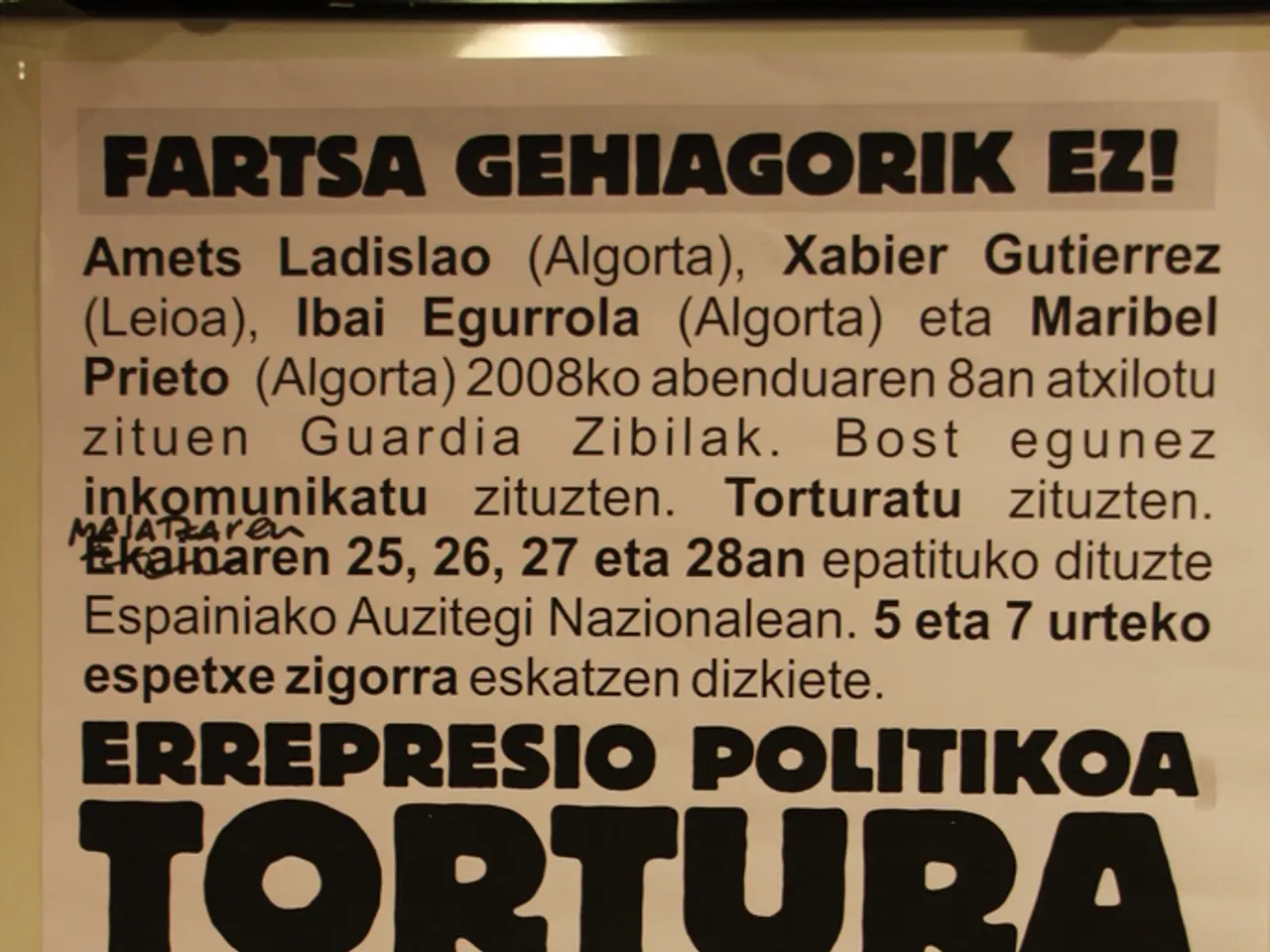Unsatisfactory paternity leave criticized, while Vox alleges Sanchez of peddling an inauthentic Spain
In Spain, a heated debate is unfolding over the government's recent decision to extend paternity leave. The extension, which aims to increase time off for new parents, has been met with criticism due to its implementation method and the resulting unpaid leave that many families find unaffordable.
The Union General de Trabajadores (UGT), a major Spanish trade union, has been vocal in its disapproval. The UGT argues that the government's use of a royal decree to implement the extension, bypassing proper social negotiation, leaves many families in a precarious financial situation. This, they say, excludes many children and families and renders the measure insufficient.
The European Union (EU) has also weighed in, fining Spain €6.8 million for delays in implementing parental leave directives. This pressure to comply may have contributed to the government's decision to push through the extension via a royal decree.
As for the political parties, Podemos, a left-wing party, would typically support increased social protections like extended parental leave. However, they have criticized the government's handling of the situation, expressing that the extension is insignificant and insufficient. Vox, a right-wing party, has not yet made specific statements regarding this issue.
Meanwhile, the controversy has extended beyond the scope of the paternity leave extension. Political figures from various parties have engaged in a heated exchange of criticisms. Podemos has accused the Prime Minister, Pedro Sánchez, of lying and covering up corruption and the war regime. Vox, on the other hand, accuses Sánchez of selling an unreal narrative of a triumphant Spain.
The President of ERC, Oriol Junqueras, has accused the Minister of Finance, María Jesús Montero, of behaving like an electoral candidate rather than a minister. Aitor Esteban, the President of the PNV, has expressed his disapproval of the current political situation, referring to it as "noise, lies, distortion or cheek".
The situation is further complicated by the looming threat of EU fines. Spain is currently being fined €9,000 a day and faces an increase to €43,000 a day from August 1 if it does not correct issues with conciliation permits.
In the midst of this political turmoil, Podemos has qualified the leave and remuneration as "merchandising", while Vox accuses Sánchez of having "lost touch with the Spanish people". Esteban has warned of the "disaffection and absolute disillusionment" that politics generates in people, especially among the young.
As the situation unfolds, it remains to be seen how the government will address these criticisms and whether they will make any changes to the paternity leave extension policy.
- The average Spanish family is concerned about the financial implications of the government's extended paternity leave policy, as it involves unpaid leave and has been implemented using a controversial royal decree.
- The European Union has fined Spain for delays in implementing parental leave directives, which may have prompted the government to push through the extension via a royal decree.
- The political landscape in Spain is characterized by heated debates and allegations of corruption, with parties like Podemos accusing the Prime Minister, Pedro Sánchez, of lying and covering up war regime activities.
- In the midst of these war-and-conflicts related allegations, the discussion on paternity leave extension is also seeing criticisms from various political parties, with some calling it insignificant and others accusing the Prime Minister of being out of touch with the people.
- As the European Union continues to fine Spain for issues with conciliation permits, the Premier League football matches in European leagues are ongoing, with political figures and sports enthusiasts alike monitoring the unfolding political situation in Spain.





